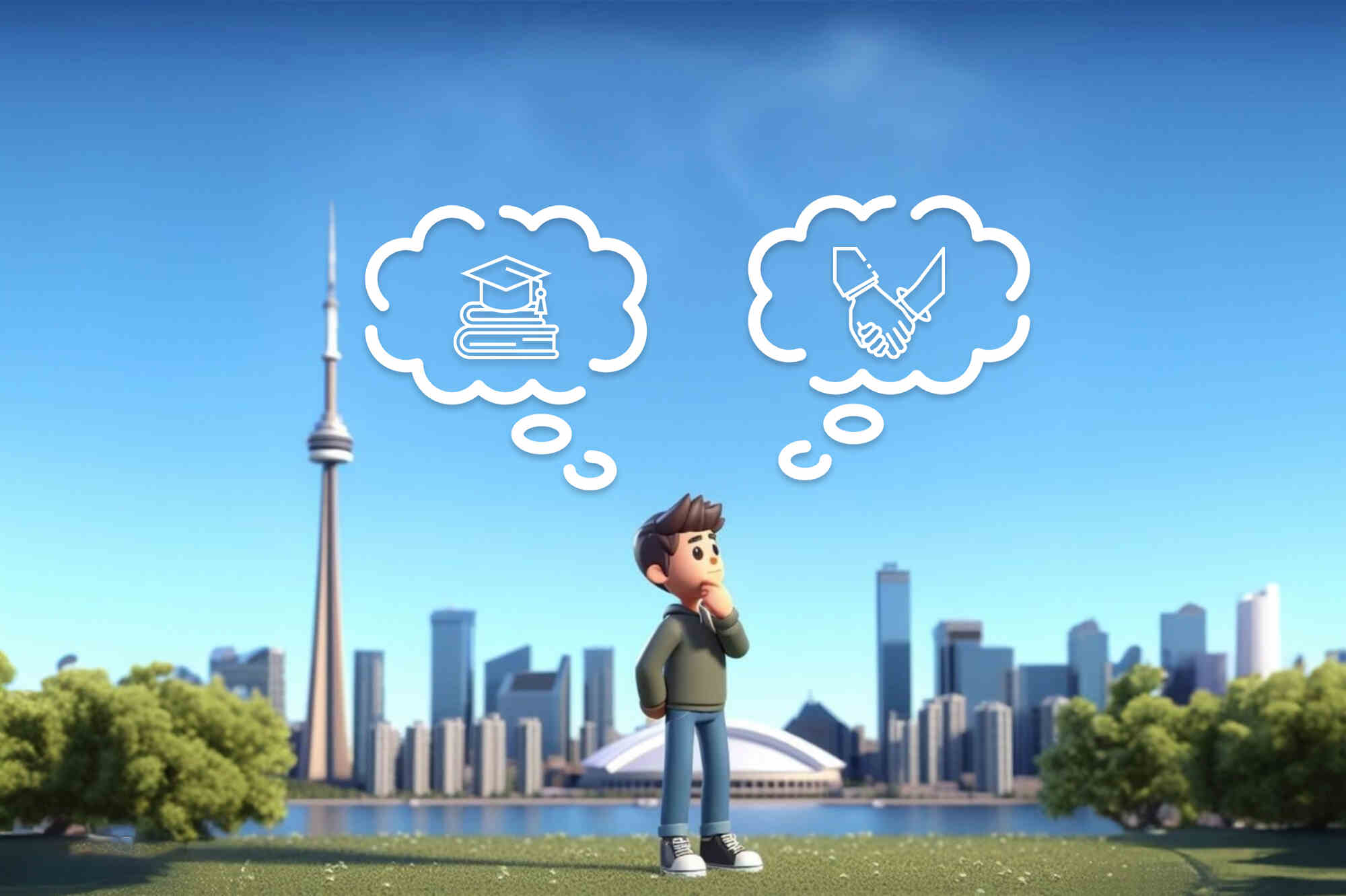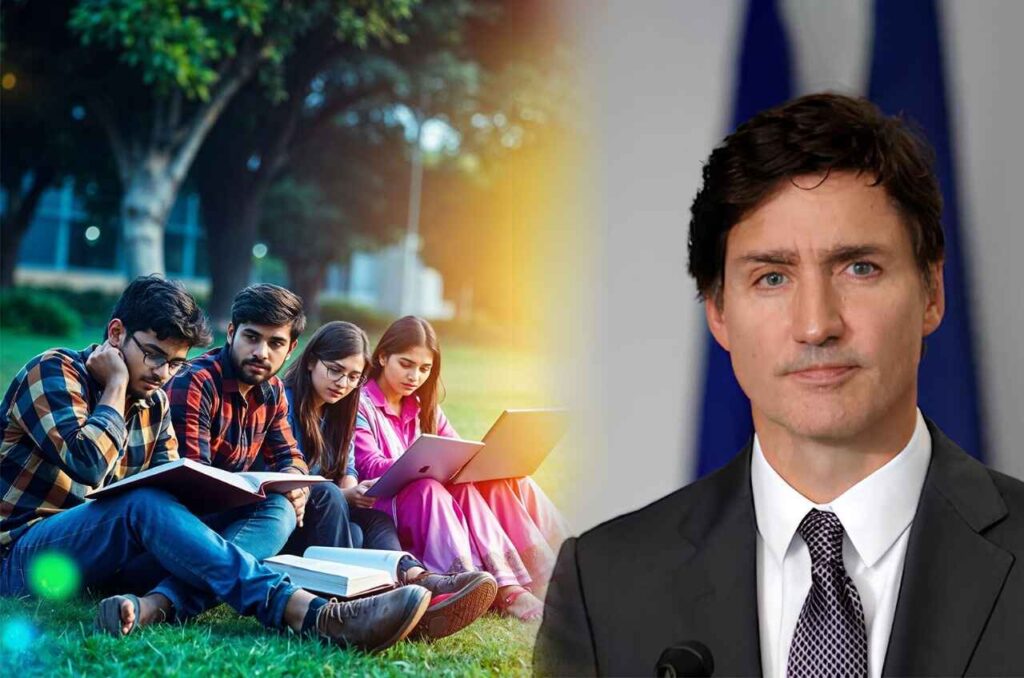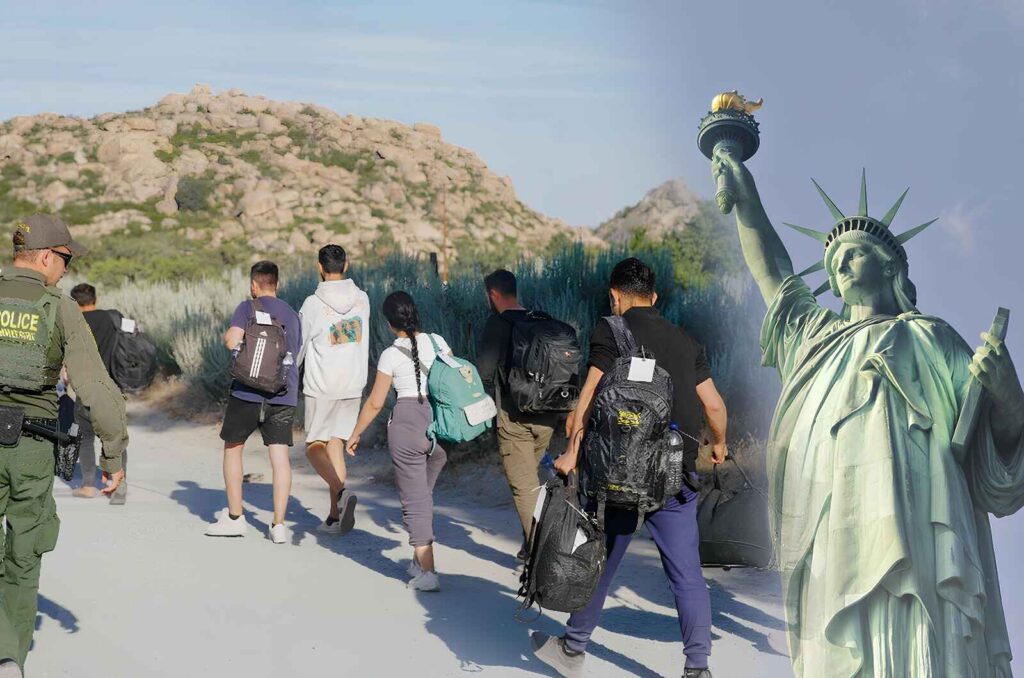International students who were enthusiastically preparing to move to Canada with their spouses and study an undergraduate programme at a Canadian university may now be facing shattered dreams. Because the latest regulations explicitly state that open work permits will not be available for spouses of students enrolled in undergraduate courses. Such permits will only apply to spouses or dependents of those undertaking doctoral, master’s, law, or medicine programmes.
It is a double whammy for international students as Canada introduces a cap on student numbers, implements a province-wise quota system, and simultaneously prohibits undergraduate students from bringing their spouses along.
Educational Opportunities for Married Individuals Seeking Higher Studies
The Student Dependent Visa is a specialised category that permits a married individual to take his spouse along while pursuing their educational journeys in a foreign country. Each nation outlines specific criteria for admitting students’ dependents, ensuring a structured approach to this process.
In the UK, there are explicit restrictions; for instance, individuals pursuing a bachelor’s degree are not permitted to bring their spouses along. You can bring your dependents, if your postgraduate course begins on or after January 1, 2024, it should be either a PhD or another advanced degree at level 8. Alternatively, it can be a research-focused higher degree. This is to make sure that postgraduate education emphasises research-based qualifications and meets the required academic standards.
Australia, on the other hand, requires individuals starting a master’s degree to have a marriage that is at least one year old. Additionally, the recognition of married cases varies among universities, with some exercising discretion in this matter. In Australia, children and married or de facto partners are considered dependents and members of the family under Australian immigration law. Couples must demonstrate that they have been in a committed, long-term relationship for at least a year.
The primary visa holder and spouse are only eligible for full-time employment privileges if they are pursuing a doctorate or master’s by research degree.
Canada was an exception since August 10, 2023, actively encouraging students to include their spouses in visa applications until a significant policy shift on January 22, 2024. As of this date, dependents are no longer allowed to accompany students pursuing undergraduate courses, but spouses can still accompany those enrolled in master’s doctoral, law, or medicine programmes.
In the USA, to obtain a dependent visa for family members of F-1 student visa holders, the spouse must apply for an F-2 visa. The spouse may apply for the F-2 visa concurrently with the student’s F-1 visa application or independently at a later date. The application process involves submitting various documents proving their relationship and the student’s financial means to support both of them. In America, spouses with F-2 visas are not permitted to work. They can enrol in a course at an approved educational institution on a part-time basis (less than a full course load). Because the F-2 visa’s validity is linked to the student’s F-1 visa, it will expire at the same time as the student’s visa. You can always seek advice from the study visa consultants in Gurugram to select the country for higher education.
Understanding the Journey Behind Policy Changes
Now, the question arises why do governments make such changes? Understanding the rationale behind these policy changes reveals a broader context. Governments enact such changes to address the misuse of the system. Over the past decade, some individuals exploited marriage as a means to immigrate, leading to strained relationships and instances of domestic violence abroad. Consequently, governments adapt their rules to curb such misuse.
The issue extends beyond policy adjustments. Marriages entered into solely for immigration purposes have contributed to a rise in cases of domestic violence. Consequently, governments are prompted to reassess their regulations to safeguard the well-being of those involved.
Also Read: From ‘I Do’ to ‘I Deal’: When Marriage Crosses Borders for Bucks and Immigration Goals
Domestic Violence: When marriages are entered into not out of genuine love, but rather as a means to secure immigration or residency in another country, the risk of domestic violence increases. In Australia, 1 in 6 women and 1 in 18 men report having been the victim of physical or sexual abuse at the hands of their present or former cohabiting partner. One in four women and one in seven men report having been emotionally abused by a cohabiting partner in the past or present.
Dilemma of Whether the Spouse Should Go with the Student
Considering the complexities involved, the question emerges: Should there be a category for student-dependent visas? This question invites debate because the primary focus of a student visa is education. However, the key lies in ensuring the authenticity of the relationship and assessing whether the spouse possesses qualifications that align with the skills needed in the host country. Emphasising the sanctity of marriage, couples need to begin their foreign educational journeys with a genuine commitment, steering away from the pitfalls of using marriage solely as a tool for immigration.
Food For Thought
Are we on the same page that Canada wouldn’t have changed its rules if people hadn’t been exploiting the student-dependent visa category for fake marriages, using it solely for migration rather than genuine relationships?


